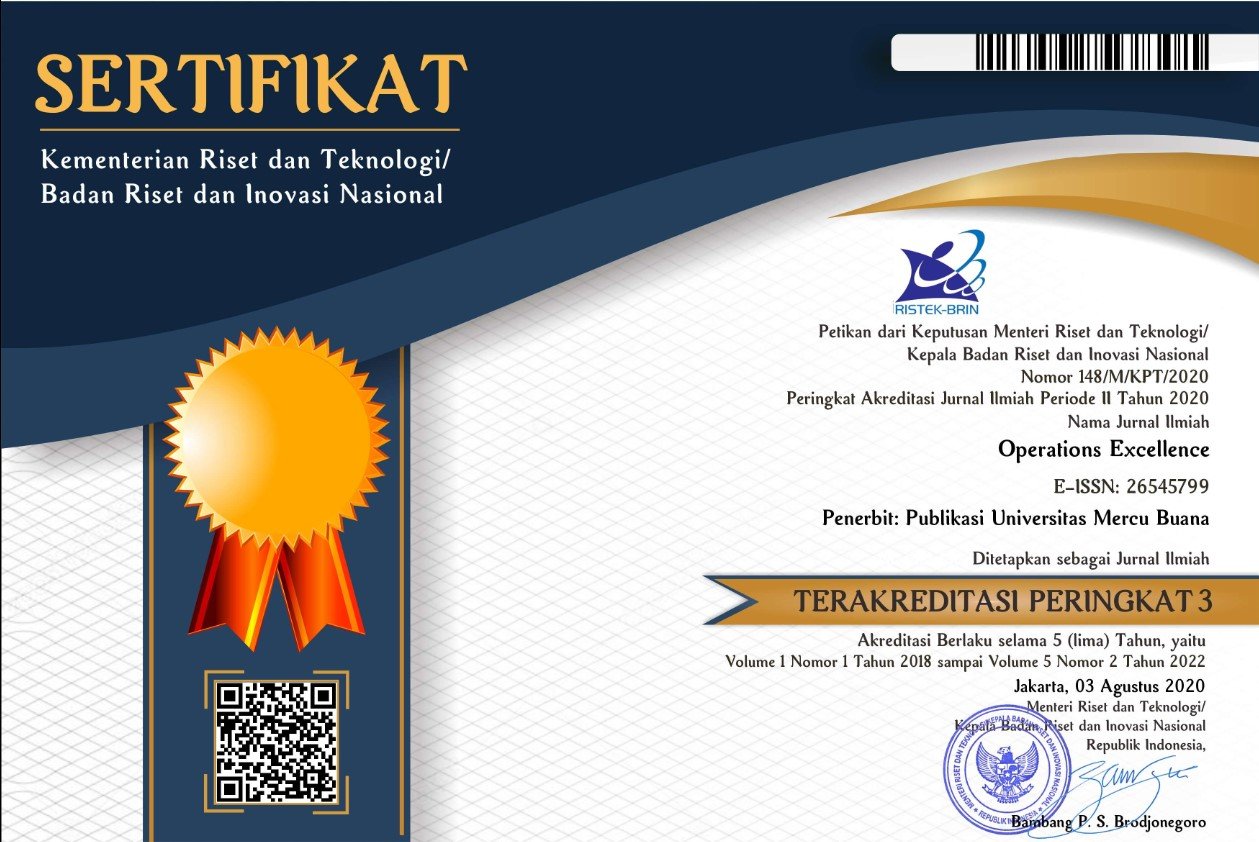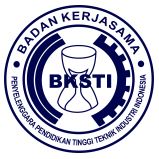Improving the performance of enterprise resource planning with the implementation of Systems, Applications, and Products in Data Processing (SAP) in a car seat manufacturing company
Abstract
Using an Enterprise Resource Planning System (ERP) during the Industrial Revolution 4.0 is a long-term investment for companies looking to enhance efficiency, performance, productivity, and decision-making capabilities. Typically, ERP systems employ a centralized database to streamline various business processes, reducing manual labor and improving workflows. These systems often include a Dashboard that provides real-time data for measuring productivity and profitability. Updated instantly when entered into the system, this information allows companies to make quick, informed decisions based on accurate, up-to-date internal data. However, discrepancies between transaction processes, such as mismatches in the quantity of goods recorded in the SAP system and actual production, can hamper the effectiveness of ERP control. To address this, research has been carried out to process information in real time and with greater accuracy. The study involves a literature review, hardware prototypes, and program development, ultimately leading to increased SAP user accuracy from 63% to 86%. This improved accuracy helps identify factors hindering optimal SAP performance and provides recommendations for resolving transactional issues. Ultimately, consistency and commitment from users and relevant stakeholders are vital for maintaining an optimally functioning ERP system.
Keywords
Full Text:
PDFReferences
Angolia, M. G. (2018). Experiential learning for logistics and supply chain management using an SAP ERP software simulation. Decision Sciences Journal of Innovative Education, 16(2), 104–125.
Bakhri, S. (2019). Evaluasi Faktor-Faktor Yang Mempengaruhi Performa Implementasi SAP ERP di Industri. Walisongo Journal of Information Technology, Vol. 1 No. 2 (2019): 111-124 DOI: http://dx.doi.org/10.21580/wjit.2019.1.2.4528, 111-124.
Darmaningrat, E. W. (2019). Analisis Kesenjangan dan Pemodelan Proses Bisnis Human Capital Management Pada PTPN XI Berdasarkan Best Practice SAP. Jurnal Teknologi Informasi dan Ilmu Komputer (JTIIK), 187-194.
F. Mahar, S. I. (2022). ERP System Implementation: Planning, Management, and Administrative Issues. Indian J Sci Techno, vol. vol. 13, no. 1, 106–112.
Farmawi. (2019). Challenges affecting the implementation of Enterprise Resource Planning (ERP) system: An analysis. Journal of Systems Integration, 35–43.
Ganesha, H. R. (2020). Integrated Inventory Management Control. International Journal of Management, Technology, and Social, 147-157.
Heri Subagyo, I. K. (2022). Heri Subagyo, I Ketut Rai Adnyana, Mudjiardjo, Edhie Budi Setiawan, (2022). Pengaruh Implementasi SAP dan Pengelolaan Persediaan Terhadap Kelancaran Operasional Kapal Melalui Kinerja Pembelian. Jurrnal Bisnis Ekonomi Manajemen dan Kewirausahaan,JBEMK , 1-9.
Husnah Husnah, D. B. (2017). Pengaruh Manajemen Pengendalaian Material dalam mencegah dan mengatasi keterlambatan proyek bangunan di madrasak aliyah kejuruan (MAK) Rokan Hulu. Jurnal Rab Construction Research, 265-283.
Klasa, K. (2018). Strategic purchasing in practice: comparing ten European countries. Health Policy. Health Policy, 457-472.
Kovács, G. (2021). Lessons learned from humanitarian logistics to manage supply chain disruptions. Journal of Supply Chain Management, 41-49.
Meltzer-Asscher, T. a. (2018). Lexical Inhibition Due to Failed Prediction: Behavioral Evidence and ERP Correlates. Exp Psychol Learn Mem Cogn, vol. 44, no. 8, pp. 1269–1285, Aug. 2018, doi: 10.1037/xlm0000525, 1269–1285
Pontoh, F. (2019). The Impact of Human Critical Success Factor on ERP System Implementation. The Impact of Human Critical Success Factor on ERP System Implementation, 20-24.
R. Maulidina, N. A. (2020). Perencanaan dan Implementasi SAP Pada PT XYZ Dengan Menggunakan Metode Accelerated SAP (ASAP). JURIKOM (Jurnal Riset Komputer), vol. 7, no. 1, p. 83, Feb. 2020, 83.
DOI: http://dx.doi.org/10.22441/oe.2024.v16.i3.119
Refbacks
- There are currently no refbacks.
Copyright (c) 2024 Operations Excellence: Journal of Applied Industrial Engineering

This work is licensed under a Creative Commons Attribution-ShareAlike 4.0 International License.
Journal ISSN:
| Print ISSN: 2085-4293 | |
| Online ISSN: 2654-5799 |
Tim Editorial Office
Operations Excellence: Journal of Applied Industrial Engineering
Magister Teknik Industri Universitas Mercu Buana
Jl. Raya Meruya Selatan No. 1 Kembangan Jakarta Barat
Email: [[email protected]]
Website: http://publikasi.mercubuana.ac.id/index.php/oe
Journal DOI: 10.22441/oe
The Journal is Indexed and Journal List Title by:

.png)
.png)
.png)


Operations Excellence: Journal of Applied Industrial Engineering is licensed under a Creative Commons Attribution-NonCommercial-ShareAlike 4.0 International License.










